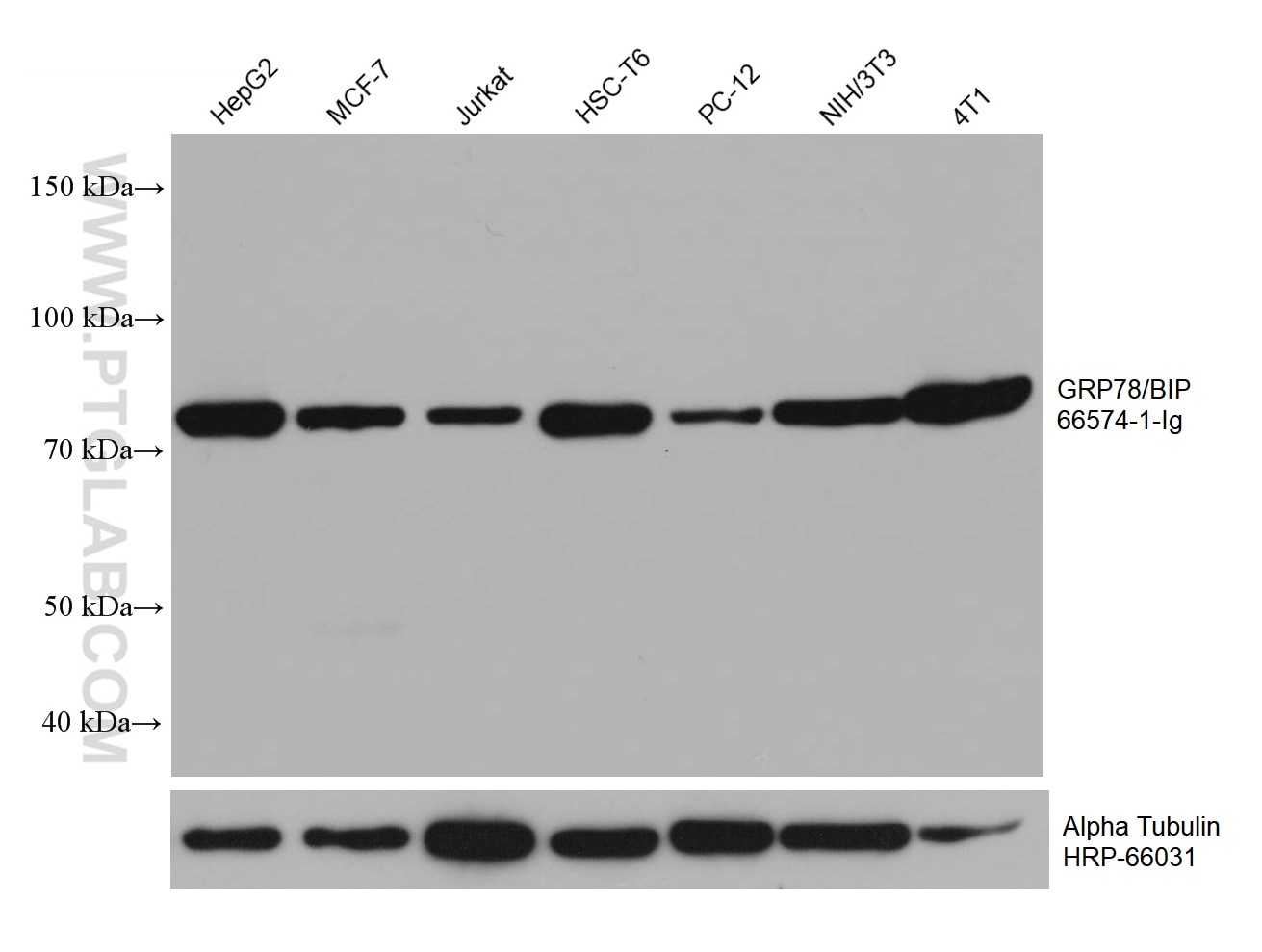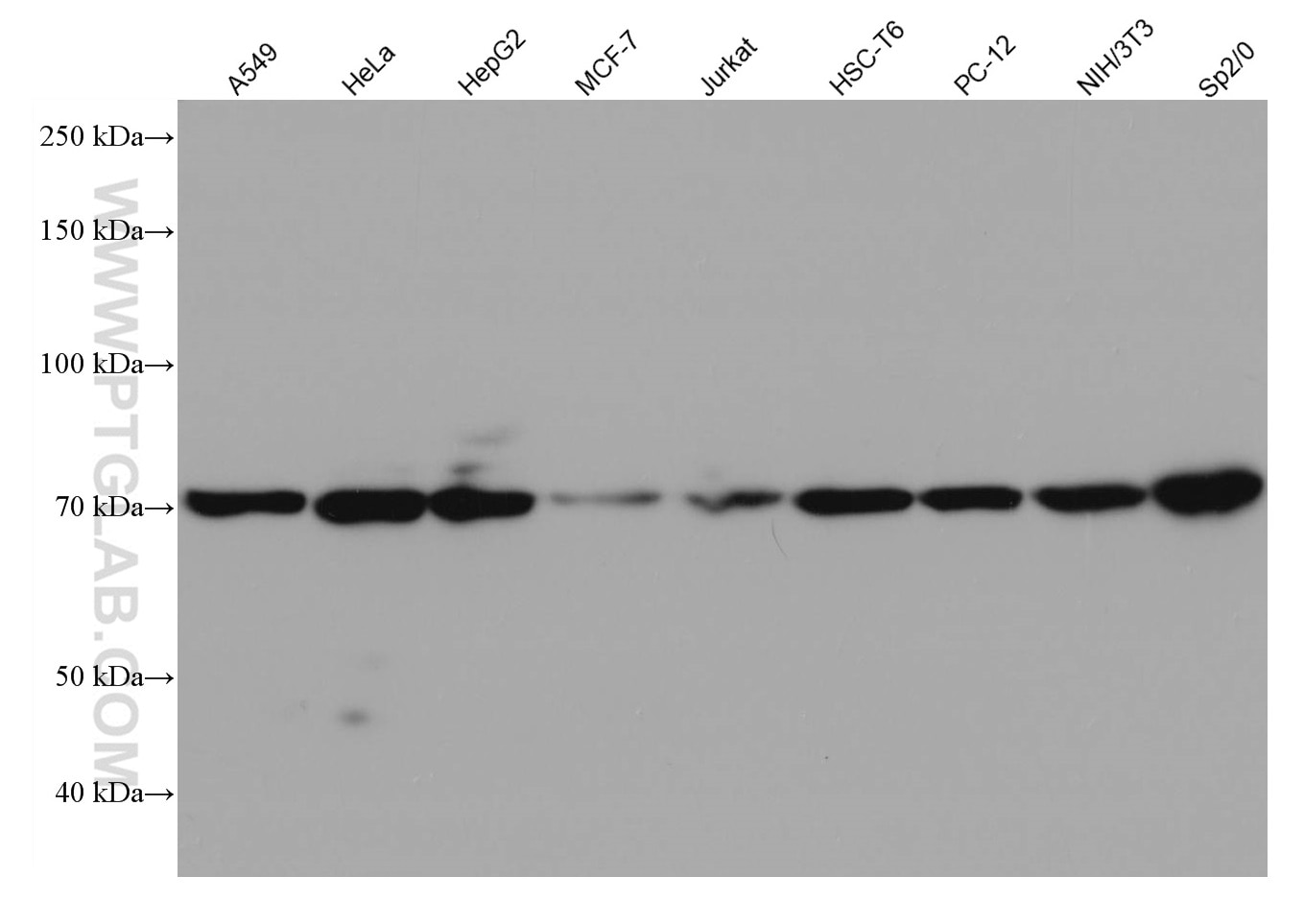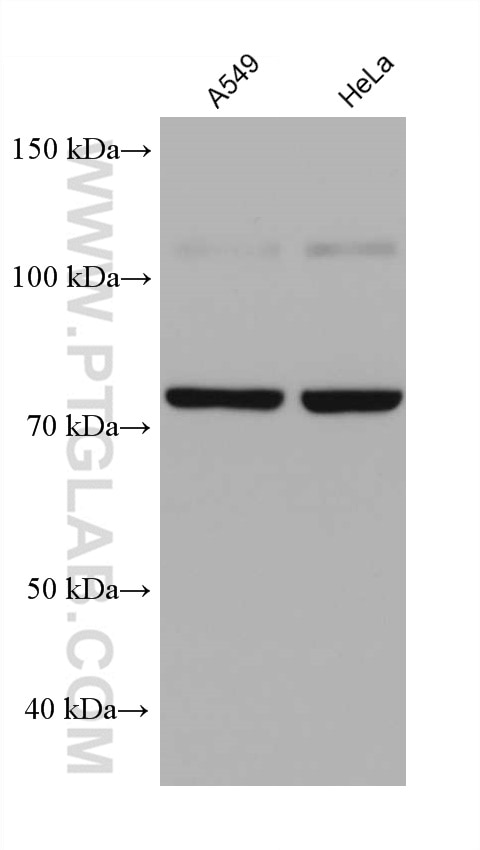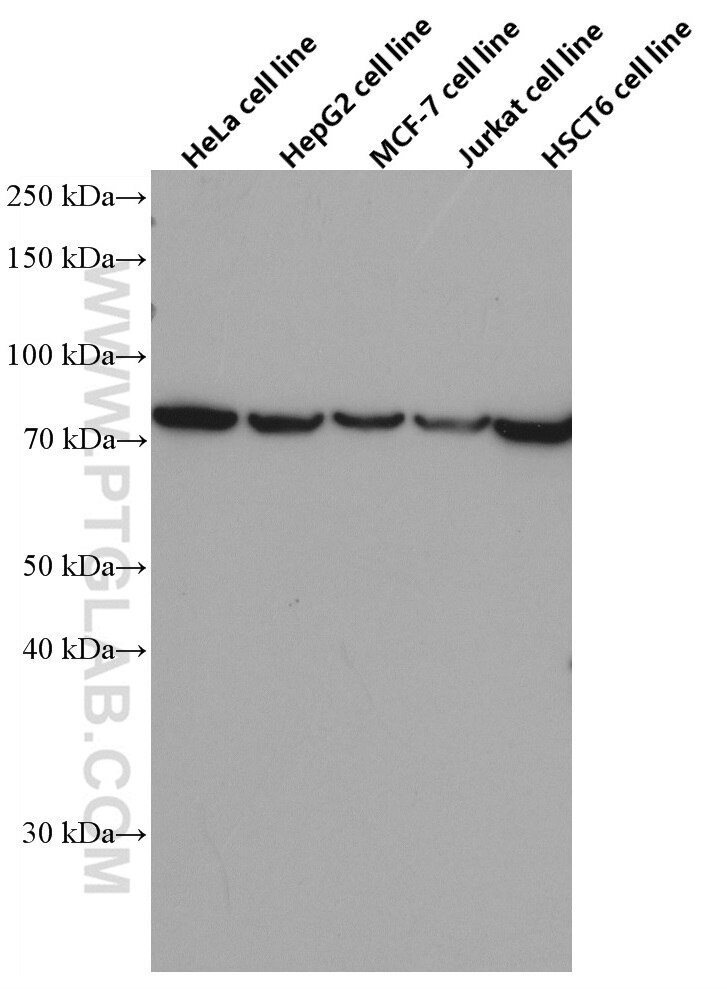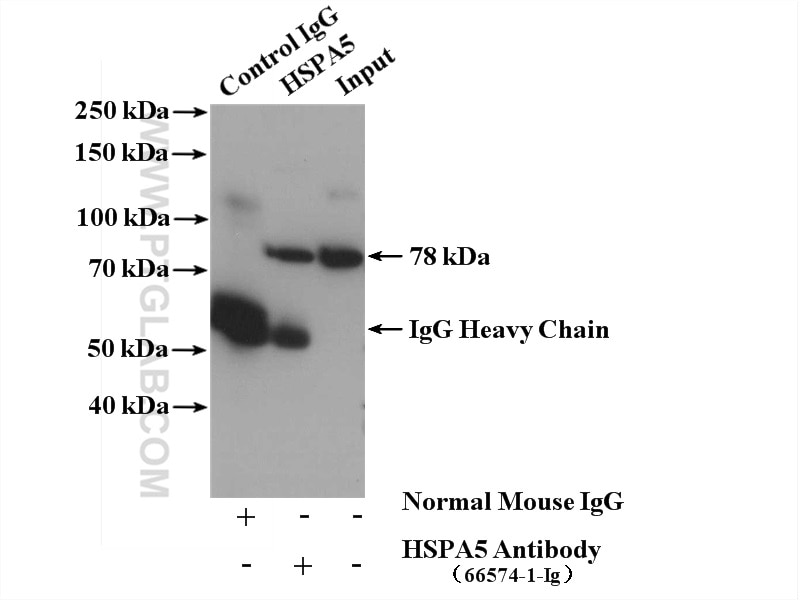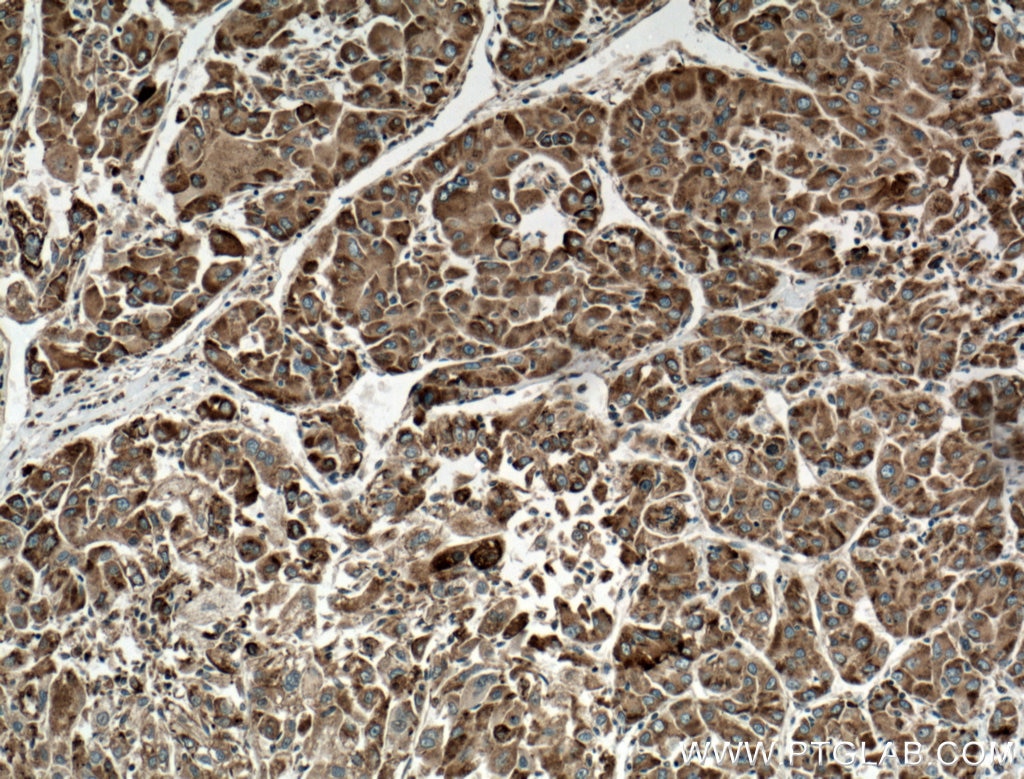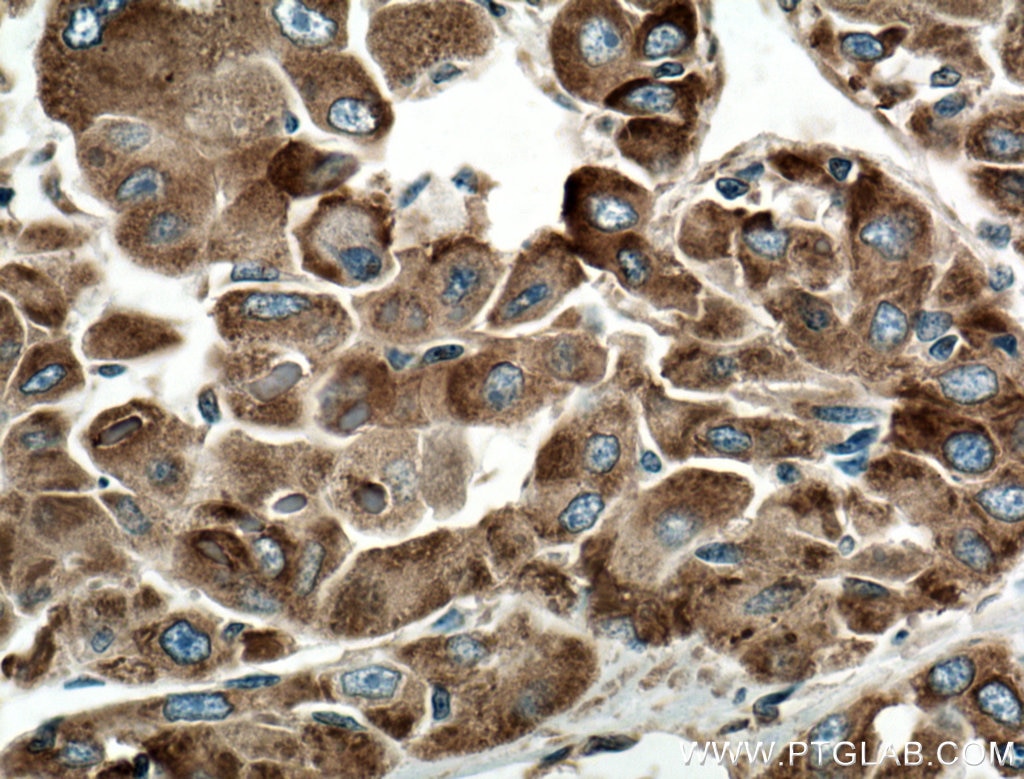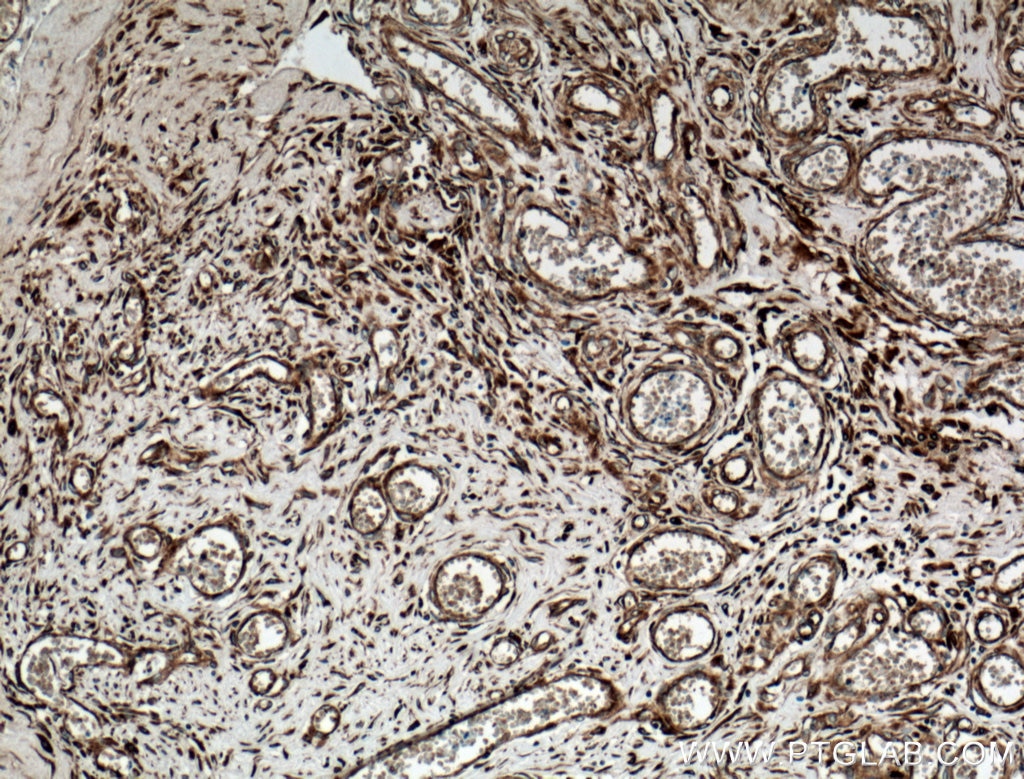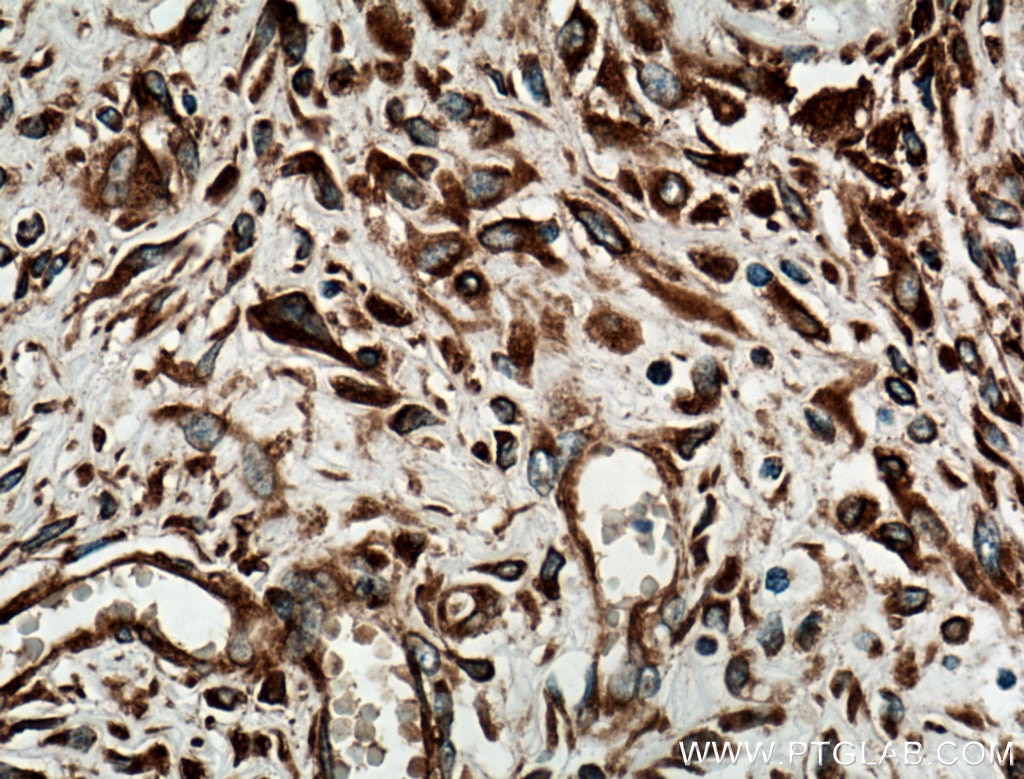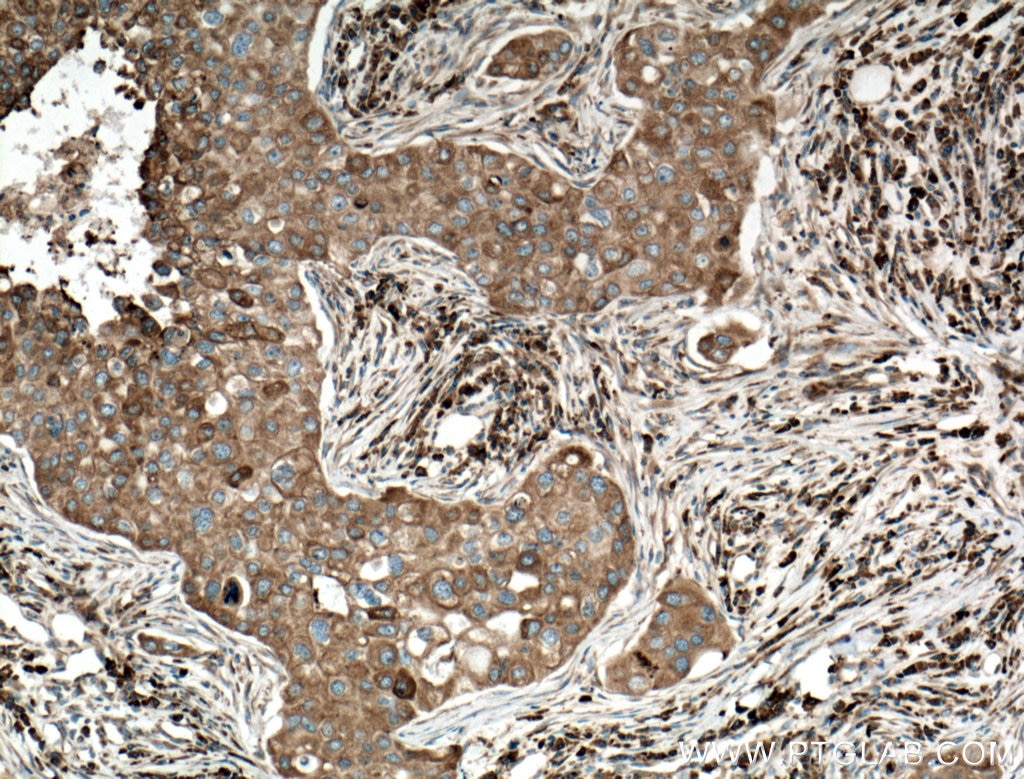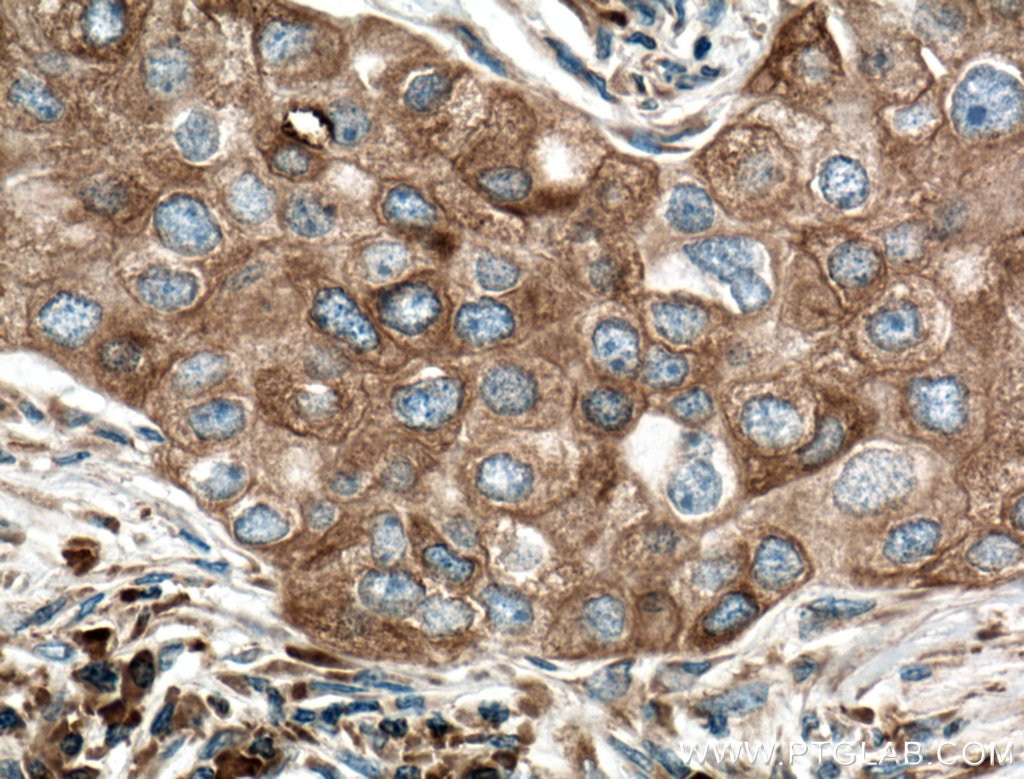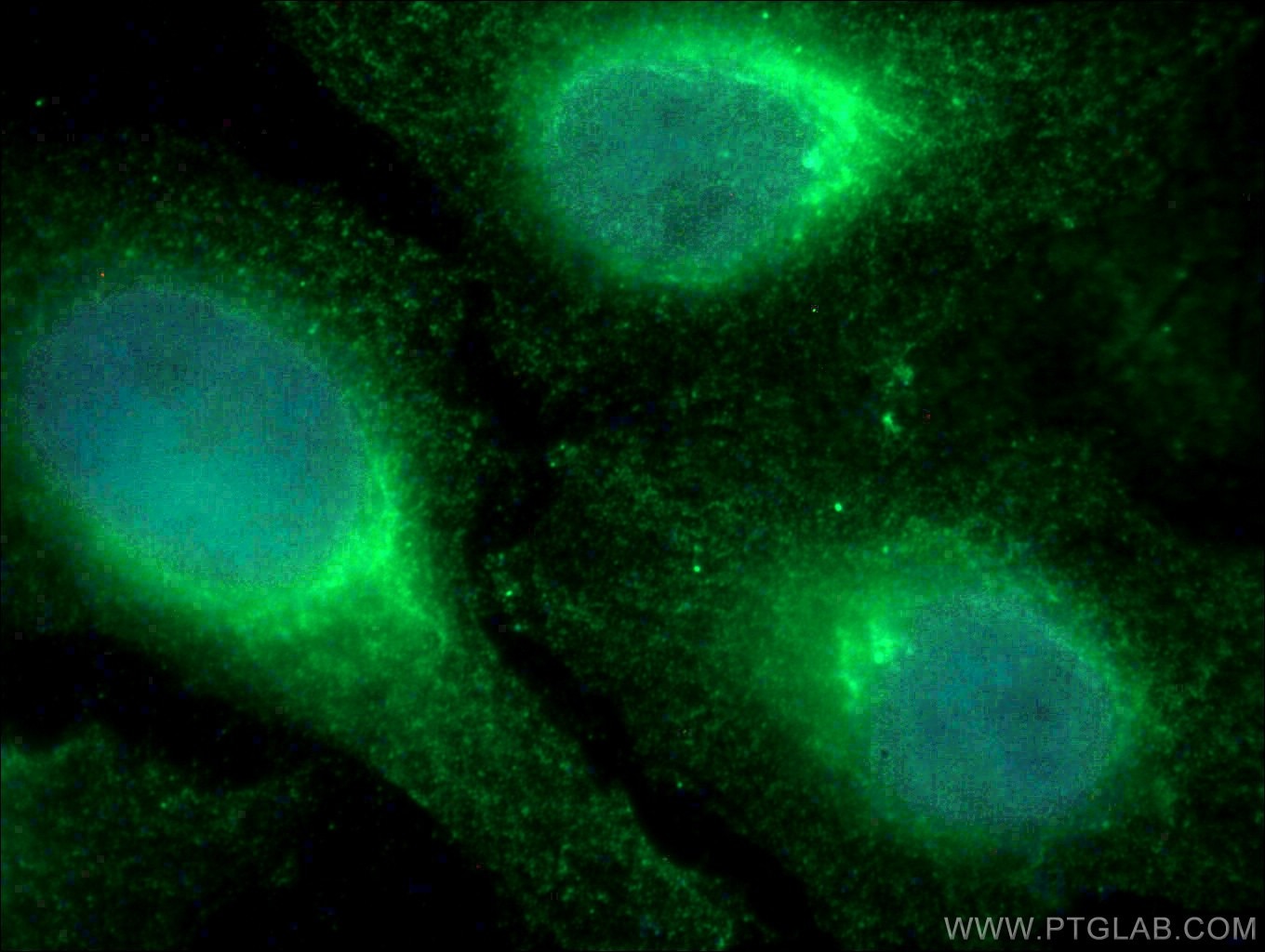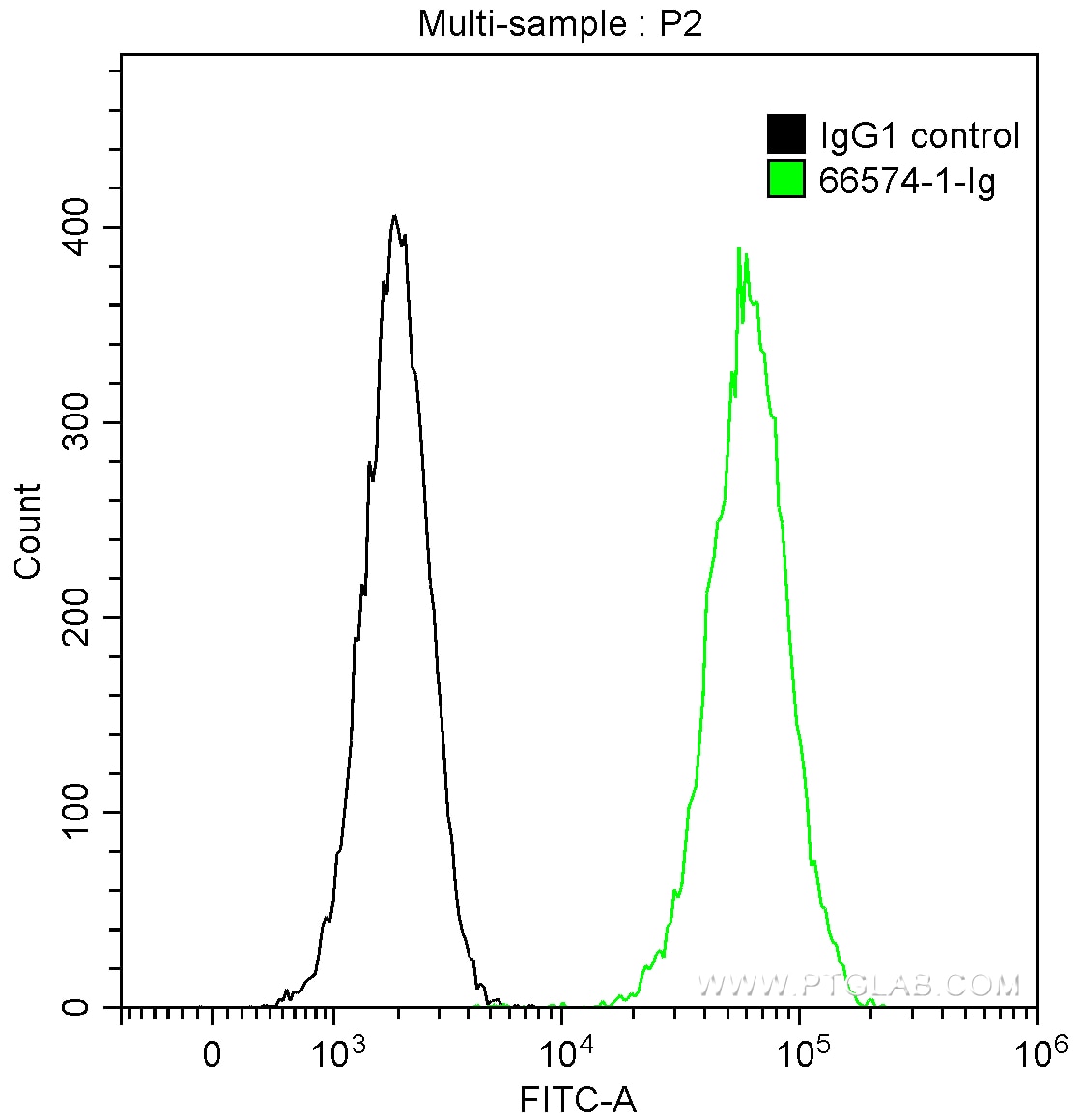GRP78/BIP Monoklonaler Antikörper
GRP78/BIP Monoklonal Antikörper für FC, IF, IHC, IP, WB, ELISA
Wirt / Isotyp
Maus / IgG1
Getestete Reaktivität
human, Maus, Ratte und mehr (2)
Anwendung
WB, IP, IHC, IF, FC, CoIP, ELISA
Konjugation
Unkonjugiert
CloneNo.
1D6F7
Kat-Nr. : 66574-1-Ig
Synonyme
Galerie der Validierungsdaten
Geprüfte Anwendungen
| Erfolgreiche Detektion in WB | HepG2-Zellen, 4T1-Zellen, A549-Zellen, HeLa-Zellen, HSC-T6-Zellen, Jurkat-Zellen, MCF-7-Zellen, NIH/3T3-Zellen, PC-12-Zellen |
| Erfolgreiche IP | SGC-7901-Zellen |
| Erfolgreiche Detektion in IHC | humanes Leberkarzinomgewebe, humanes Kolonkarzinomgewebe, humanes Mammakarzinomgewebe Hinweis: Antigendemaskierung mit TE-Puffer pH 9,0 empfohlen. (*) Wahlweise kann die Antigendemaskierung auch mit Citratpuffer pH 6,0 erfolgen. |
| Erfolgreiche Detektion in IF | HeLa-Zellen |
| Erfolgreiche Detektion in FC | MCF-7-Zellen |
Empfohlene Verdünnung
| Anwendung | Verdünnung |
|---|---|
| Western Blot (WB) | WB : 1:5000-1:50000 |
| Immunpräzipitation (IP) | IP : 0.5-4.0 ug for 1.0-3.0 mg of total protein lysate |
| Immunhistochemie (IHC) | IHC : 1:500-1:2000 |
| Immunfluoreszenz (IF) | IF : 1:50-1:500 |
| Durchflusszytometrie (FC) | FC : 0.20 ug per 10^6 cells in a 100 µl suspension |
| It is recommended that this reagent should be titrated in each testing system to obtain optimal results. | |
| Sample-dependent, check data in validation data gallery | |
Veröffentlichte Anwendungen
| WB | See 50 publications below |
| IHC | See 7 publications below |
| IF | See 11 publications below |
| IP | See 1 publications below |
| CoIP | See 2 publications below |
Produktinformation
66574-1-Ig bindet in WB, IP, IHC, IF, FC, CoIP, ELISA GRP78/BIP und zeigt Reaktivität mit human, Maus, Ratten
| Getestete Reaktivität | human, Maus, Ratte |
| In Publikationen genannte Reaktivität | human, Hausschwein, Maus, Ratte, Zebrafisch |
| Wirt / Isotyp | Maus / IgG1 |
| Klonalität | Monoklonal |
| Typ | Antikörper |
| Immunogen | GRP78/BIP fusion protein Ag2188 |
| Vollständiger Name | heat shock 70kDa protein 5 (glucose-regulated protein, 78kDa) |
| Berechnetes Molekulargewicht | 78 kDa |
| Beobachtetes Molekulargewicht | 70-78 kDa |
| GenBank-Zugangsnummer | BC020235 |
| Gene symbol | HSPA5 |
| Gene ID (NCBI) | 3309 |
| Konjugation | Unkonjugiert |
| Form | Liquid |
| Reinigungsmethode | Protein-G-Reinigung |
| Lagerungspuffer | PBS mit 0.02% Natriumazid und 50% Glycerin pH 7.3. |
| Lagerungsbedingungen | Bei -20°C lagern. Nach dem Versand ein Jahr lang stabil Aliquotieren ist bei -20oC Lagerung nicht notwendig. 20ul Größen enthalten 0,1% BSA. |
Hintergrundinformationen
GRP78 (HSPA5), also referred to as 'immunoglobulin heavy chain-binding protein' (BiP), is a member of the heat-shock protein-70 (HSP70) family and is involved in the folding and assembly of proteins in the endoplasmic reticulum (ER).It is a constitutively expressed resident protein of the ER in all eukaryotic cells. Recently it has been reported that GRP78 is associated with apoptosis or inhibition of cancer cell growth.
Protokolle
| Produktspezifische Protokolle | |
|---|---|
| WB protocol for GRP78/BIP antibody 66574-1-Ig | Protokoll herunterladen |
| IHC protocol for GRP78/BIP antibody 66574-1-Ig | Protokoll herunterladen |
| IF protocol for GRP78/BIP antibody 66574-1-Ig | Protokoll herunterladen |
| IP protocol for GRP78/BIP antibody 66574-1-Ig | Protokoll herunterladen |
| FC protocol for GRP78/BIP antibody 66574-1-Ig | Protokoll herunterladen |
| Standard-Protokolle | |
|---|---|
| Klicken Sie hier, um unsere Standardprotokolle anzuzeigen |
Publikationen
| Species | Application | Title |
|---|---|---|
J Clin Invest Sec13 promotes oligodendrocyte differentiation and myelin repair through autocrine pleiotrophin signaling. | ||
Redox Biol Mecheliolide elicits ROS-mediated ERS driven immunogenic cell death in hepatocellular carcinoma. | ||
Phytomedicine Asperosaponin VI protects alcohol-induced hepatic steatosis and injury via regulating lipid metabolism and ER stress | ||
J Control Release Glutathione-responsive copper-disulfiram nanoparticles for enhanced tumor chemotherapy | ||
Mol Oncol The synthetic oleanane triterpenoid CDDO-2P-Im binds GRP78/BiP to induce unfolded protein response-mediated apoptosis in myeloma | ||
Mol Nutr Food Res Portulaca oleracea L. Extract Ameliorates Intestinal Inflammation by Regulating Endoplasmic Reticulum Stress and Autophagy. |
